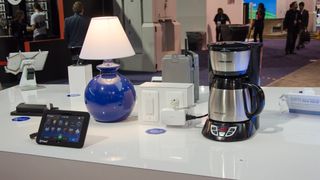How to deal with the challenges of the smart meter rollout
Are you prepared for the smart meter shake-up?

With smart meters set to become a game changer for the industry, it is imperative for all entrants in the race to prepare their IT systems for the switchover and ensure that the customer always comes first in the race to the finish line. However, despite the impending deadline, there are still key hurdles for companies to overcome to enable them to compete in an industry that is gathering pace.
In this article, we'll outline some of the challenges ahead and how companies can get their IT infrastructure in order, to cope with the long road ahead.
Get a head start
Before taking the plunge and overhauling billing and customer management systems, energy suppliers need to understand the strain that will be put on their systems by the introduction of smart meters. "Big billing" – the upgrade of billing and customer information systems to turn the increasing volume of data from smart metering into revenue – will be one of the main challenges facing utilities companies as they look to cope with both the increased levels and opportunities associated with data and information.
Energy retailers are devising tactical plays in pinpointed market segments, greater interaction with consumers via connected devices, and even forays into entirely new, non-energy markets. If they are to realise these ambitions they will all need competencies in billing and customer information that are orders of magnitude greater than current needs, and that existing systems support.
So before they venture forth into this data-dominated realm, energy retailers need assurances their system upgrades will hold up. After all, in looking to make radical changes to data systems, the retailers will find themselves stripping down the engine that keeps their business on track. There can be no spanners in the works. Closer dialogue between information professionals and the board of directors will be vital in understanding what is involved and the impact that software and infrastructure failures could have on the business' ability to stay competitive if billing systems fall over when smart metering goes live.
With many established utilities companies bogged down by legacy systems, traditional infrastructures will struggle to cope with these future big billing scenarios. They were designed for a different landscape and the complex multi-platform environment will add additional strain.
The key to success will be for utilities companies to apply change quickly and confidently. System design, build and testing will need to consider this, in particular end-to-end regression testing will need to grow and utilities companies will need to become more adept at testing in-home devices. It is therefore imperative that when the upgrade happens, regular quality testing forms a key part of the process to ensure big billing will be well supported and that there are no nasty surprises at the end of the process.
Are you a pro? Subscribe to our newsletter
Sign up to the TechRadar Pro newsletter to get all the top news, opinion, features and guidance your business needs to succeed!
Although the rollout of smart meters isn't scheduled until 2020, 62% of consumers are sceptical that the rollout will go smoothly, as many previous big IT projects have faced delays or gone over budget. With this is mind, companies must not underestimate the challenge ahead and need to put appropriate due diligence in place now when overhauling systems, to ensure a smooth transition when everything goes live.
With reputations and market share on the line, providers cannot afford to have IT departments in disarray and angry customers knocking on the door when processes fail.
Increased expectations
But it doesn't stop there. Consumers won't just expect a smart meter system that works, they will want more for their money and will increasingly demand more modern, flexible billing options and customer care solutions that can accommodate varying combinations of products and services.
At least three of the large energy suppliers have recently fallen foul of customer ire and dissatisfaction – and the subsequent wrath of the regulator – following errors in newly implemented systems. Billing-related issues accounted for 84% of complaints to the Energy Ombudsman between January and June 2014, demonstrating the harm that can arise during changes to billing and customer interface systems and why thorough testing of the systems is vital.
Most Popular


